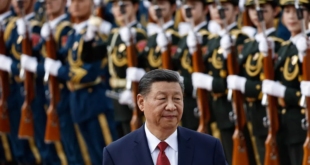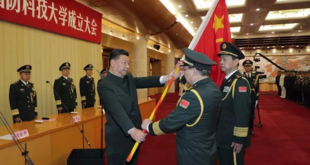The fall of Kabul was inevitable and the only surprising element was the speed of Taliban’s advance. On the part of India, it was a strategic failure and stinging humiliation. India had invested almost $3bn in construction of dams, power lines, schools, roads and training of Afghan soldiers. India even built a fancy Afghan parliament, furthermore gave out multiple scholarships to Afghan students to study in Indian institutions. From India’s stand point, India has always thought of herself as being the hegemon of the region if not of the whole world. From the very start, prominent leaders like Jawaharlal Nehru on 22nd March 1949, commented: “We do not wish to place ourselves in a position where, politically speaking, we are just lined up with a particular group or bound up to it in regard to our future foreign activities. India is too big a country herself to be bound down to any country, however big it may be. India is going to be and is bound to be a country that counts in world affairs, not I hope in the military sense, but in many other senses which are more important and effective in the end.” Having a foothold in Afghanistan in this regard would serve multiple purposes. It would have access to the resource rich states of Central Asia, it would also gather intelligence on Pakistan’s western reaches (especially Balochistan). And also, would have exerted any possible military pressure on Pakistan that could’ve been aligned with the objectives of the previous U.S. installed Afghan government.
Taliban’s control of Afghanistan is a strategic loss for India because its ties with Afghan government had given them a sense of being a regional power but to their loss all went in vain. It is long debated that Pakistan has its share of disrupting the situation in Indian held Kashmir. For the said purpose India could have a position of threat to use its Afghan assets to stir conflicts in Pakistan’s agitated region of Balochistan.
India from the very inception of relations with Afghanistan, ignored and distanced itself from the Taliban and always supported the Afghan governments of previous eras. This year in June, there was a shift in Indian foreign policy towards Taliban as Indian envoys for the first time engaged with the Taliban directly. In the past, India supported Northern Alliance, a staunch enemy of the Taliban. The sudden pullout of America from Afghanistan should be an eye opener for India as on 15th of August, 2021, Times of India puts it, “at a time when India has strategically hitched its wagon to the US, the Afghan situation should make New Delhi think twice about putting all its eggs in Washington’s basket.”
Pakistan and China both sees India as a bitter rival and therefore, it is a movement of strategic victory for them to see India draws back from Afghanistan. Some critics say that, Pakistan has not much to cheer about either. Asad Durrani, the former ISI chief while talking to the Economist on 21st August, 2021, said, “Pakistan itself doesn’t deserve no credit for the Taliban’s victory, except for having resisted the pressure from America and its allies.”
There are concerns over the use of Afghan territory by enemies of Pakistan to try and destabilize peace in the already conflict-ridden regions of Pakistan. This concern carries huge amount of weight as Taliban in recent days released Terik-i-Taliban Pakistan (TTP) leaders from Afghan prisons. There are news of Taliban roaming freely in Pishin, a district of Balochistan near Chaman border. One resident on 19th of July, 2021, told DW (Deutsche Welle), a German public state-owned international broadcaster of news on condition of anonymity that, “Taliban enjoy local support here, clerics are asking for donations to further the cause of Taliban to do jihad in Afghanistan.” On the other hand, Pakistan’s foreign minister, Shah Mehmood Qureshi hopes for an agreement between the two countries not to allow their soil to be used to attack the other.
The overall situation in Afghanistan is alarming for the whole world especially for Pakistan. The episode of American withdrawal at quick pace, leaving a condition of uncertainty brings many questions to ponder upon. When USSR withdrew from Afghanistan, it was process of peace. USSR installed government ruled for three years from 1989 to 1992 before the country was plunged into chaos. But the recent episode didn’t even let the American installed government to last even for U.S. to fully withdraw its troops.
This abrupt and fast change in geopolitics of Afghanistan presents a threat to Pakistan in the shape of bad Taliban as Taliban representatives have categorically stated that, the Taliban will not allow anyone to use Afghanistan’s soil against Pakistan. On the other hand, an Afghan Taliban spokesperson stated, TTP is none of their concern and Pakistan needs to tackle them by themselves. This begs one to ask Pakistan policy makers to look deep into state policies and may be even revise them for a strategic victory and economic growth of Pakistan.
 Eurasia Press & News
Eurasia Press & News



